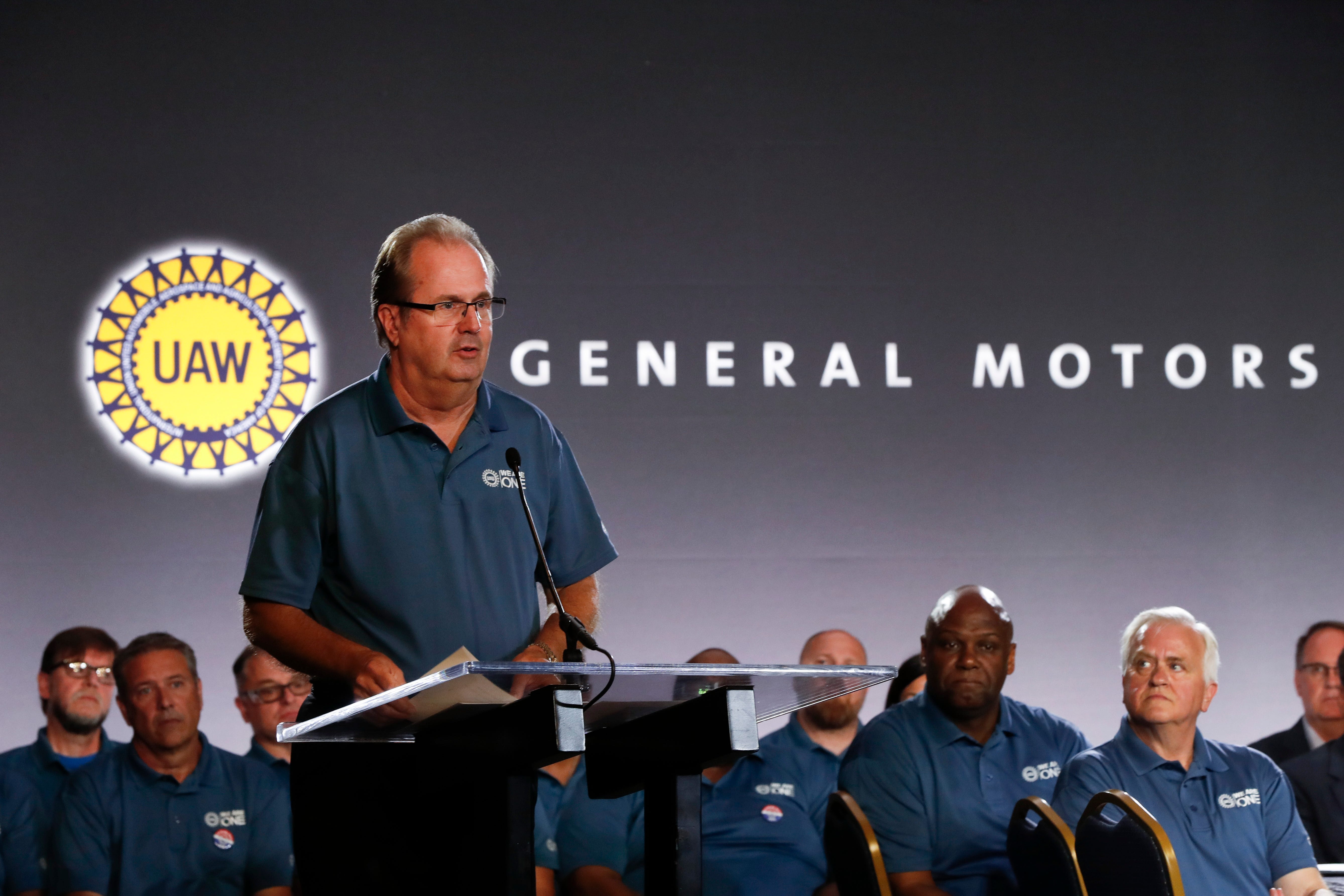Howes: Federal corruption probe looms over UAW-GM talks
 Daniel Howes
Daniel HowesDetroit’s national contract talks traditionally featured two sides at the negotiating table — the United Auto Workers and the “target” company, which this year is General Motors Co.
Not anymore. Not with the Justice Department, the FBI, the Internal Revenue Service and the Labor Department widening their years-long probe into corruption at Solidarity House and in joint training centers funded by the automakers. Not after law-enforcement raids approved by federal magistrate judges in four states last week searched the homes of UAW President Gary Jones and his predecessor, Dennis Williams.

Looming over bargaining are the federal machinations and the prospect that a sitting UAW president and other top officers could be among the next indictments. They create an ominous sense of uncertainty, officials on both sides say privately, as UAW and GM bargainers work toward the Sept. 14 expiration of their current four-year deal.
With each passing week, the nine convictions in the scandal so far look like the prelude to a bigger federal rollup of a culture of corruption within the UAW. And as national contract talks intensify, the feds appear to be accelerating the pace and widening the focus of their investigation to include high-ranking union officials — moves that, presumably by design, are keeping both the union and the automakers off-balance and mystified.
The unpredictability is unprecedented for a process designed to deliver security and certainty to both sides, except in the most dire macro-economic circumstances. This is not one of those times for the UAW or GM, Ford Motor Co. and Fiat Chrysler Automobiles NV, completing their longest run of year-over-year profit and sales expansion since the 1960s.
And that's just the beginning. The coming 2020 election cycle, the UAW leadership’s interest in deflecting attention from its apparent legal jeopardy and President Donald Trump’s penchant for wading into auto industry controversies via Twitter mean the prospects for yet more chaos are likely to rise exponentially over the coming weeks and months.
This is uncharted territory. Two of three Detroit automakers are a decade removed from federally induced bankruptcy; profitable companies are looking to lower labor costs even as hourly workers demand base-pay raises and continuation of world-class private health care; federal filings and reporting by The Detroit News show recent and sitting union leadership used training funds and member dues money to finance lavish perks like long vacations and building a posh lakefront home for a retired union president.
It's in this confused context that UAW and GM bargainers are charged with delivering a tentative agreement that a majority of the automaker's 46,000 hourly workers would ratify. Good luck with that: the stench of corruption, suspicion and mistrust will hang over whatever the two sides produce, and no one should be surprised if union members use ratification to register their disgust and vote no.
How can they believe the leadership is working to safeguard the financial interests of members, not their own? How can they be assured the union president touting a so-called "TA" with GM won't soon be the target of a federal indictment that lists alleged crimes because that's how the system works? How can they know the "Clean Slate" agenda of reforms isn't really an after-the-fact effort at a cover-up?
The questions answer themselves, highlighting just how difficult this year's bargaining process will be for both sides to navigate. Yes, the pressure is on the union to deliver a deal that could win majority support. But pressure also is on GM to remove the excess plant capacity weighing on its bottom line, to deliver on promises already made to shareholders, to get a contract ratified.
That's why a strike this fall is more likely than not, especially against GM. Its move to close four U.S. plants and one in Canada amid strong profitability and impressive margins in North America understandably rankles the rank-and-file. It also offends Washington politicians from both parties who seem to think the price for a taxpayer rescue 10 years ago should be to operate money-losing plants in perpetuity.
The core of the UAW's bargaining every four years with Detroit's three automakers are the economics of wages and health care, profit-sharing and pensions — and the requisite theater to telegraph to members that the leadership fought the good fight with management.
This year, it's a lot more than that. The legal quagmire ensnaring current and past leadership, and the political context enveloping a process turbocharged by social media, pose enormous challenges for the UAW and all three automakers trying to sell a prospective (and clean) deal to their hourly workforces.
It was never going to be easy. And each new move by the feds will only make it harder — for all sides.
daniel.howes@detroitnews.com
(313) 222-2106
Daniel Howes’ column runs Tuesdays, Thursdays and Fridays. Follow him on Twitter @DanielHowes_TDN, listen to his Saturday podcasts, or catch him 3 and 10 p.m. Thursdays on Michigan Radio’s “Stateside,” 91.7 FM.